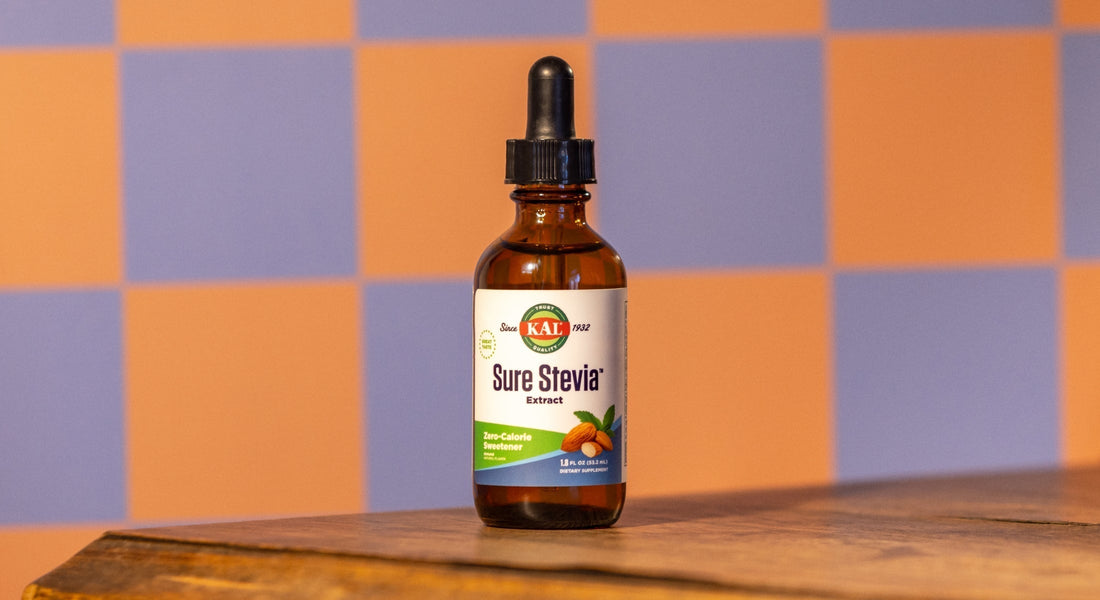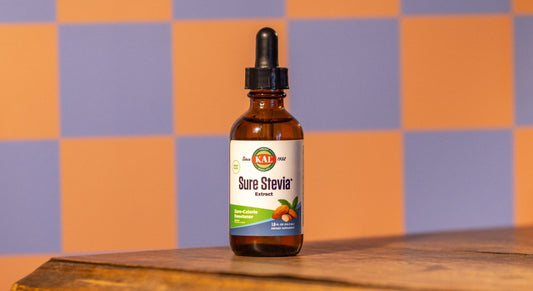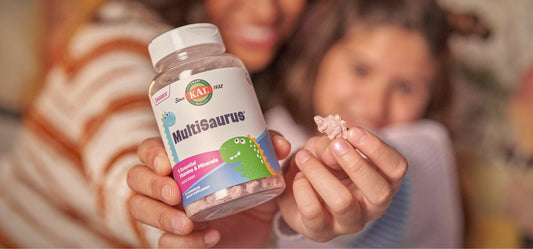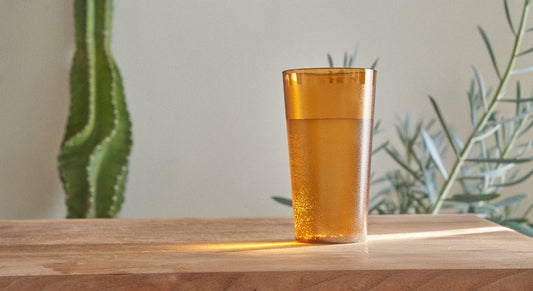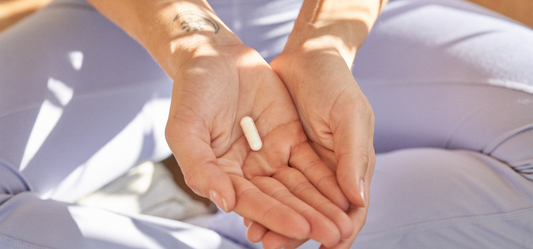People often say diet soda is worse than regular soda. You hear it so much, it starts to sound true. But if you check the science, things are a bit more nuanced—and sometimes even reassuring.
Sweeteners like stevia and monk fruit are plant-based, low in calories, and can help satisfy your sweet tooth without all the extra sugar or artificial stuff.
Let’s see what the research and major health organizations really say about artificial sweeteners, and how you can make the best choices for your wellness goals.
What the Experts Say
Major health organizations aim to keep things balanced by distinguishing between lab-created sweeteners aspartame and sucralose, and plant-derived options, such as stevia and monk fruit. While both types can help reduce sugar intake, the source and how they’re processed set them apart.
In 2023, the World Health Organization (WHO) looked at dozens of studies and found that non-sugar sweeteners can help people cut back on sugar and calories, at least in the short term. But the real benefits depend on how you use them. They work best when you’re also eating real food, drinking enough water, and following an overall balanced diet.1
According to the U.S. Food and Drug Administration (FDA), each type of high-intensity sweetener, such as stevia leaf extract, monk fruit, and sucralose, must be evaluated for safety before it’s approved for use in foods and beverages. The FDA establishes acceptable daily intake (ADI) levels for these sweeteners, which represent the amount considered safe to consume daily. Staying within these guidelines helps ensure they can be part of a balanced diet.2
Nature-derived sweeteners like stevia and monk fruit can easily replace sugar in your coffee, tea, or favorite recipes, so you can enjoy them without feeling guilty.
What the Research Shows
Much of the confusion about sweeteners stems from headlines that may not be telling the whole story. Many studies that link artificial sweeteners to health problems are observational—they notice a pattern, but don’t prove that one thing causes the other. But controlled human studies generally find that approved sweeteners are safe when consumed in moderation.3
Scientists are still figuring out exactly how sweeteners affect things like metabolism and gut health. So far, the evidence suggests that if you use non-sugar sweeteners in moderation, especially if they help you eat less added sugar, they can fit right into a healthy diet.4
A Closer Look at Nature-Derived Sweeteners
Stevia
Stevia comes from the leafy green plant native to South America. People there have used it for centuries to add sweetness, long before it became popular worldwide. Today, it’s one of the top zero-calorie sweeteners available.
The FDA says certain purified stevia extracts, such as Rebaudioside A, are Generally Recognized As Safe (GRAS). Stevia gives you real sweetness but skips the calories, so it’s a solid pick if you’re trying to cut back on sugar or just want something more rooted in nature.*2
Try KAL Sure Stevia Extract Liquid or Sure Stevia Extract Powder in your coffee, smoothie, or baked goods for simple, plant-based sweetness that feels right at home in your healthy routine.
Monk Fruit
Monk fruit sweetener is made from a small green melon that grows in southern China. It gets its sweetness from natural compounds called mogrosides, which taste a lot like sugar but don’t come with any calories.
Just like stevia, monk fruit extract is on the FDA’s GRAS list, meaning it’s widely recognized as a safe swap for sugar.*5
You can use KAL Monk Fruit Sweetener anywhere you would normally use sugar, from your morning oatmeal to baked desserts. It offers balanced sweetness that supports your wellness goals.
Artificial Sweeteners: A Quick Comparison
Artificial sweeteners like aspartame, sucralose, and saccharin have been used for decades and are considered safe when used as directed. Still, plenty of people now prefer to look to nature for their sweeteners, so plant-based options like stevia leaf and monk fruit have become the go-to alternatives to sugar.
If you’re looking to reduce sugar without relying on synthetic additives, stevia and monk fruit are two of the easiest swaps you can make.
How to Use Sweeteners Wisely
- Think about cutting back, not just swapping out sugar for the same amount of sweetener. Use smart alternatives to help you gradually reduce your intake of added sugar.
- Mix it up. Try stevia one week and monk fruit the next to keep things interesting and your taste buds happy.
- Don’t forget the basics: drink plenty of water and eat plenty of whole foods. Sweeteners work best when they’re just one small part of your bigger healthy routine.
For more tips and ideas on how to reduce your sugar intake, visit our related post: Creative Ways to Curb Sugar Cravings.
Where KAL Sweeteners Fit In
At KAL, we believe sweetness should be simple, inspired by nature, and something you can truly savor. That’s why we craft our sweeteners to give you the flavor you love without the sugar or synthetic ingredients that can get in the way of feeling your best. Each one offers a slightly different experience so that you can find the perfect match for your lifestyle and preferences.
Sure Stevia Extract Liquid
A quick, effortless way to sweeten your day. Just a few drops blend smoothly into coffee, tea, smoothies, or even yogurt, making it a versatile choice for anyone who wants easy sweetness without the calories or sugar spikes.*
Sure Stevia Extract Powder
Ideal for cooking and baking, KAL Stevia Powder provides steady sweetness that’s easy to measure and mix. From breakfast muffins to savory sauces, it’s a simple way to bring your favorite recipes to life.
Monk Fruit Sweetener
Offering a mild flavor that pairs beautifully with both hot and cold dishes, monk fruit is a great option for those who enjoy a subtler sweetness. Whether you’re stirring it into oatmeal, sprinkling it over fruit, or using it in baked goods.
No matter which you choose, KAL sweeteners make it easy to enjoy the flavor you love while supporting balanced, mindful eating every day.
The Bottom Line
There isn’t strong evidence that artificial sweeteners are worse than sugar. What really matters is how you use them and which ones you pick.
Nature-derived options like stevia and monk fruit let you enjoy that sweet taste you love, while still sticking to your healthy habits. With just a few easy swaps, you can enjoy your favorite foods and sweet treats while feeling good about your choices. Sweetness shouldn’t come with guilt, and with KAL, it doesn’t have to.
*These statements have not been evaluated by the Food and Drug Administration. These products are not intended to diagnose, treat, cure or prevent any disease.
Resources
- World Health Organization. Use of Non-Sugar Sweeteners: WHO Guideline. 2023. https://www.who.int/publications/i/item/9789240073616
- U.S. Food and Drug Administration. Additional Information About High-Intensity Sweeteners. https://www.fda.gov/food/food-additives-petitions/high-intensity-sweeteners
- Rios-Leyvraz, M., and Montez, J. Health Effects of Non-Sugar Sweeteners: A Systematic Review. World Health Organization, 2022. https://www.who.int/publications/i/item/9789240046429
- Rother, K. I., et al. Non-Nutritive Sweeteners and Their Effects on Metabolism and Gut Microbiota. Nutrients, 2023. https://pmc.ncbi.nlm.nih.gov/articles/PMC9453245/
- U.S. Food and Drug Administration. GRAS Notice Inventory: Monk Fruit Extract. https://www.fda.gov/food/generally-recognized-safe-gras/gras-notice-inventory
